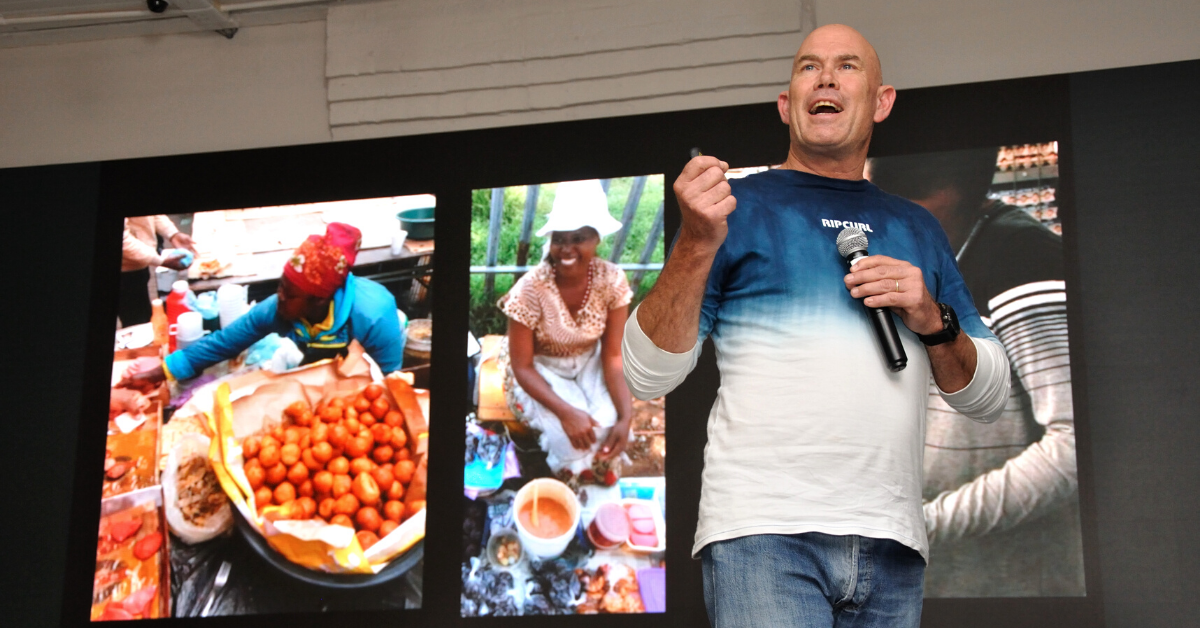
05 May Ignoring SA’s Informal Sector To Your Detriment
Author, speaker, and businessman GG Alcock delivered an eye-opening speech to the 150-strong crowd. Beside the fact that he was brought up in a Zulu community with no running water, electricity, or modern conveniences, his continuing relationships with people who run businesses in the townships of SA affords incredible insight into the informal sector.
Alcock believes that the informal business sector is the next great frontier of Africa and it is currently undergoing an economic revolution, right under our noses. He writes at length about this in his latest book Kasinomic Revolution.
He spoke about simple side-of-the-road food stalls able to support kids through college, to full-blown township-style franchises selling kotas, mogodu, chicken dust and alcohol bringing in R90 billion a year.
Property owners in townships make extra income by renting any and every available space on their property – from a small ‘ama-room’ space to an ‘i-flat’ (a backyard rented dwelling), to a tiny stall rented for a couple of hundred Rand a month to sell their wares. Bakkie rental is also a burgeoning business; with stall and spaza shop owners renting bakkies and lorries for as little as R100 to transport goods destined for retail sales.
According to Alcock, spaza shops, spazarettes and cash&carries are a R150 billion a year industry. He showed us a picture of a Somali shop owner busy using 3 smartphones in hand; testament to the real need for more dynamic tech solutions for this market. Tech solutions are also needed to save people precious time standing in long queues for services, for logistics, for handling payments in a more secure way.
Xenophobia has always been a problem in SA however when you consider that R25 billion in rent is paid by foreigners to South Africans every year, it just makes one think that this is the kind of information the media should be reporting on, don’t you think?
It really begs the question: Why are we continuing to ignore the informal sector?

